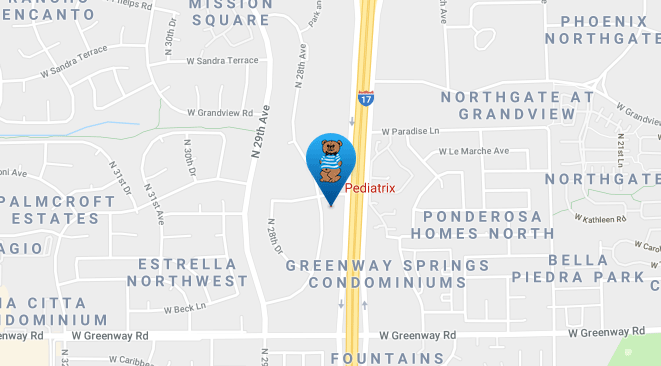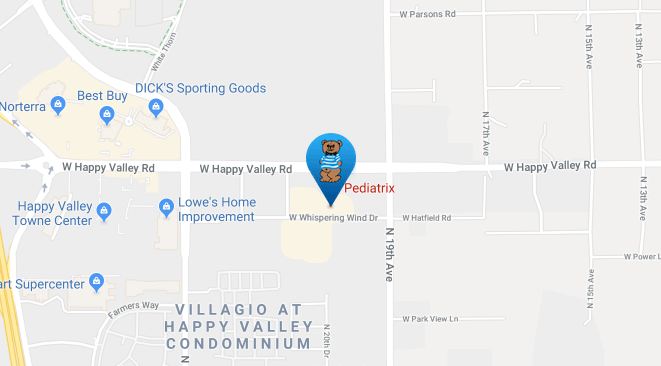Medical Record Requests
AVAILABLE FOR EXISTING PEDIATRIX PATIENTS ONLY
Medical Record Requests
Patient/Parent/Guardian Request ›
Third-Party Request ›
AVAILABLE FOR EXISTING PEDIATRIX PATIENTS ONLY
Children’s teeth begin forming before birth, early in the fetal stage. Your diet during pregnancy provided the essential nutrients for your baby’s tooth development. Most children begin teething at four to six months of age. Indicators include drooling, biting and chewing.
When do children teeth? This is a common question. The answer is, that the first teeth to appear are usually in the front, known as incisors on the lower jaw. They’re normally followed by the four upper central and lateral incisors. Then the lower lateral incisors and the molars appear. Before the child’s second birthday, the pointed teeth known as canines usually come through. After age two, the remaining molars erupt.
Teething children can experience many symptoms including low grade fever, irritability and waking up at night. But, at Pediatrix we hesitate to attribute symptoms to teething until other possible causes have been ruled out.
Teething Care
To care for a teething child, try having him chew on something cold such as wet wash cloth which has been placed in the freezer for a few minutes. Tylenol can be effective in relieving symptoms. Solutions placed directly on the gums don’t last long enough to be very effective, but may help.
Brushing should begin as soon as the teeth come in to ensure proper teething care. Also, remember that bottles in bed cause rotting of the teeth. A good rule to follow for healthy teething is: no bottles in bed.
Thumbsucking and Pacifiers
All babies are born with a sucking reflex. Because of this they will suck on a fist, finger, nipple or anything else that comes in contact with their mouths. Because sucking is necessary for feeding, your baby soon comes to associate it with feelings of satisfaction and security.
As a child grows older, it’s normal for him to suck on fingers, pacifiers or favorite objects. You may notice an increase in sucking activity if your child is anxious, tired, hungry or stressed.



